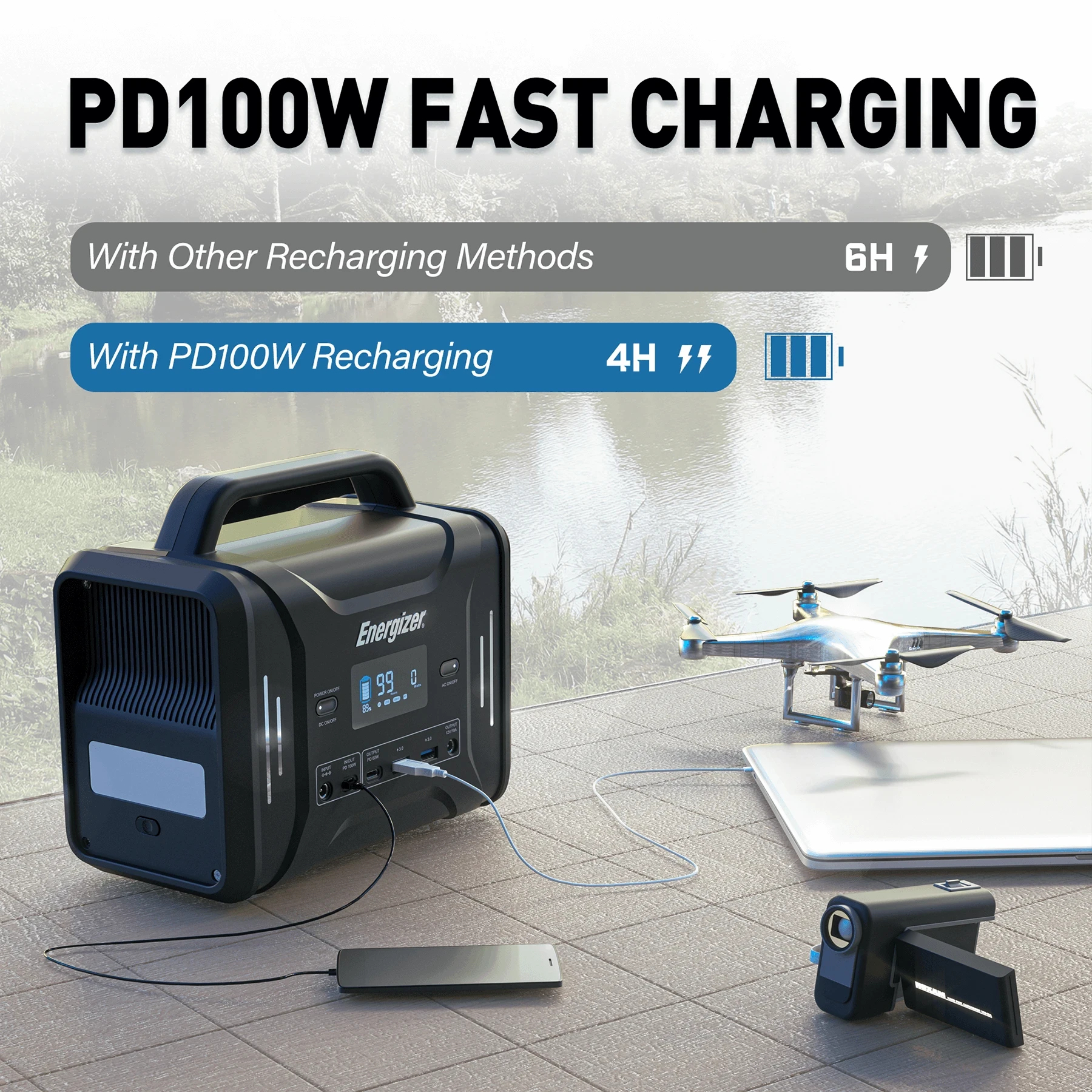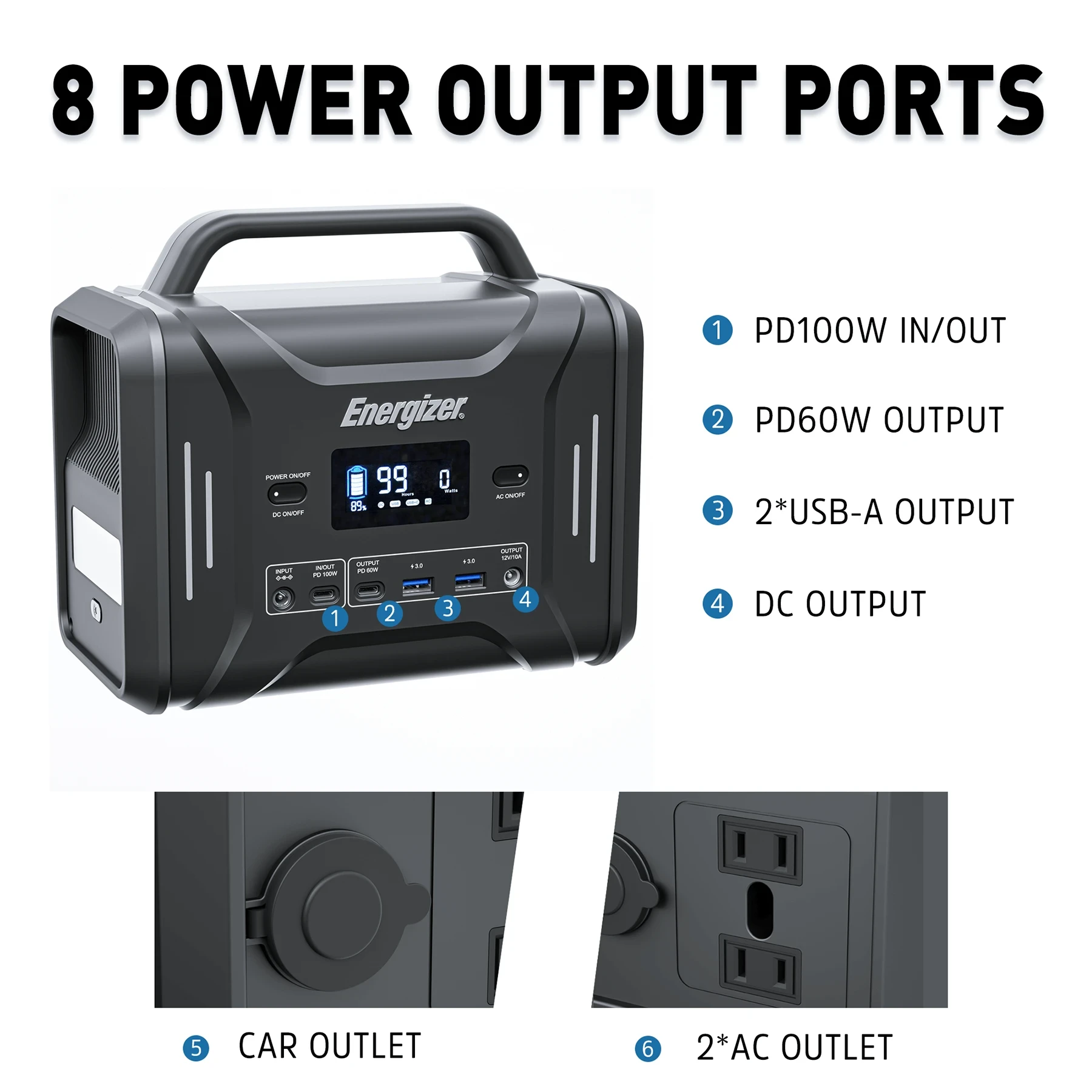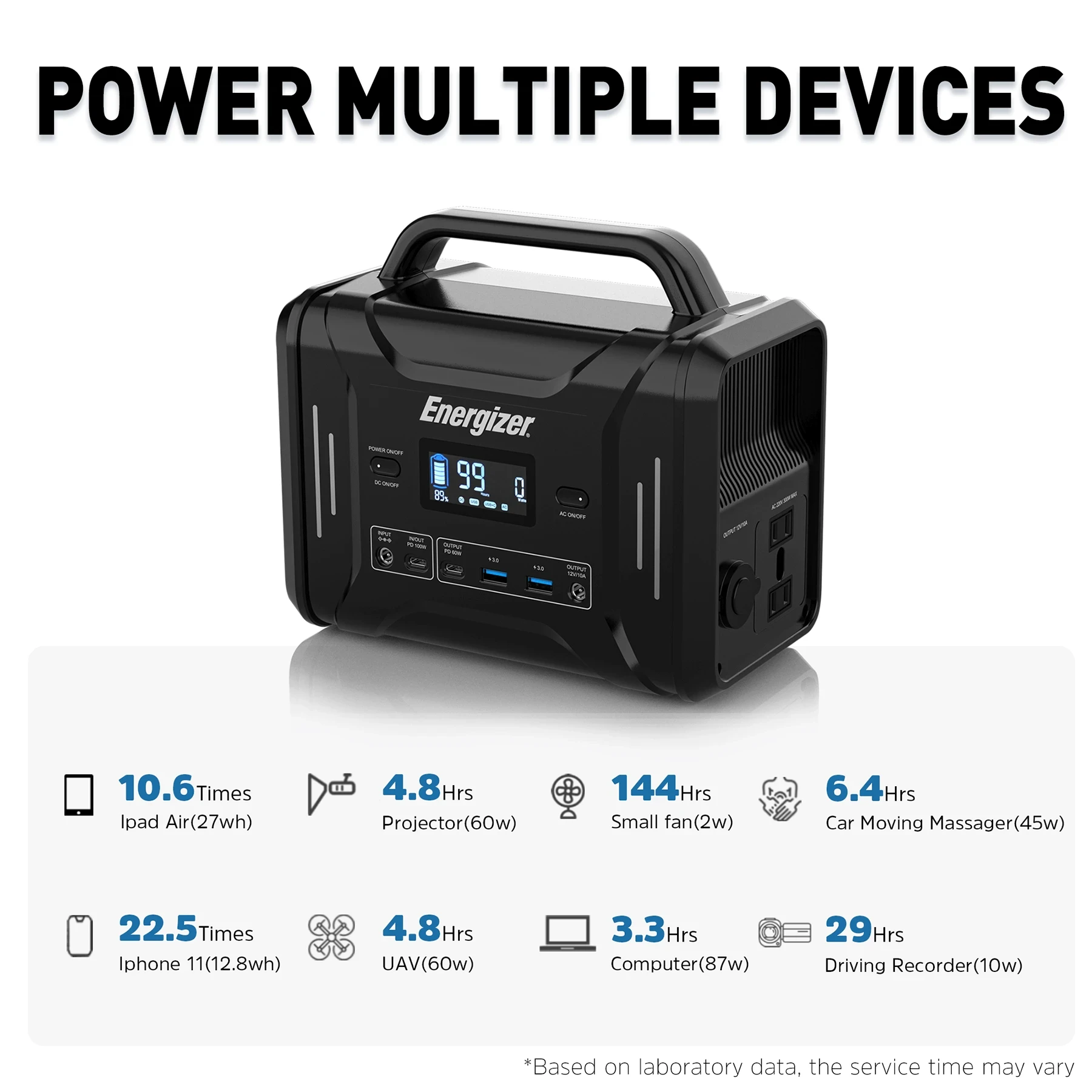Portable power station benefits

A portable power station is a portable battery-powered generator that can be used to power various devices and appliances, both indoors and outdoors. Here are some of the benefits of using a portable power station:
- Convenience: A portable power station is designed to be compact and lightweight, making it easy to carry around and use whenever and wherever needed.
- Versatility: Portable power stations can power a wide range of devices, including smartphones, laptops, lights, fans, refrigerators, and even power tools.
- Power backup: Portable power stations can serve as a backup power source in case of power outages, allowing you to continue using your essential devices and appliances.
- Clean energy: Portable power stations use clean energy sources, such as solar panels or rechargeable batteries, making them an eco-friendly alternative to traditional gas-powered generators.
- Cost-effective: Over time, using a portable power station can be more cost-effective than buying gasoline for a generator, especially if you use renewable energy sources to recharge it.
- Noise-free operation: Unlike gas-powered generators, which can be noisy and emit fumes, portable power stations operate quietly and without any emissions, making them ideal for use in residential areas and campgrounds.
- Easy to maintain: Portable power stations require little maintenance, making them a hassle-free and low-maintenance power source.
- Increased mobility: Portable power stations allow you to take your power source with you wherever you go, whether you're camping, tailgating, or working on a remote job site.
- Safe to use: Portable power stations are designed with safety features to prevent overcharging, short-circuits, and other potential hazards.
- User-friendly: Most portable power stations are easy to use, with intuitive interfaces and simple controls. Many models also come with helpful features like built-in LED lights and USB ports.
- Long-lasting power: Portable power stations can provide hours or even days of continuous power, depending on the size and capacity of the battery.
- Environmentally friendly: Using a portable power station reduces your carbon footprint and helps to reduce air and noise pollution.
- Emergency preparedness: A portable power station can be an essential tool in an emergency situation, allowing you to power your phone, radio, and other devices, and even run small appliances like a mini-fridge or electric stove.
- No need for extension cords: With a portable power station, you don't need to worry about finding an electrical outlet or running extension cords across your yard or campsite.
- Charge multiple devices at once: Many portable power stations come with multiple USB ports, AC outlets, and DC outlets, allowing you to charge multiple devices simultaneously.
- Reduce noise pollution: Because portable power stations don't require a gas-powered engine, they don't create the same level of noise pollution as traditional generators. This makes them ideal for use in residential areas or when camping in areas with noise restrictions.
- Lightweight and easy to transport: Portable power stations are designed to be lightweight and compact, making them easy to transport and store when not in use.
- Low maintenance: Most portable power stations require minimal maintenance, with no need for oil changes or other routine maintenance tasks.
- Versatile charging options: Depending on the model, portable power stations can be recharged using solar panels, AC outlets, or car adapters, making them versatile and adaptable to a range of situations and environments.
- More reliable than traditional generators: Because portable power stations don't have any moving parts or internal combustion engines, they are less likely to break down or require repairs, making them a more reliable source of power.
Overall, the benefits of using a portable power station make them an attractive option for anyone looking for a reliable, convenient, and environmentally friendly source of power for their devices and appliances, whether they're camping, working remotely, or dealing with a power outage.
How to choose a portable power station

A portable power station is a versatile device that allows you to charge and power various electronic devices when you're off the grid or during power outages. Choosing the right portable power station can be overwhelming with so many options available. In this article, we will discuss some important factors that you should consider when selecting a portable power station.
1.Capacity:
The first factor to consider when selecting a portable power station is its capacity. This refers to the amount of energy it can store and deliver to your devices. You'll want to choose a power station with enough capacity to meet your needs. If you're planning to use it to power a small fan or charge your phone, a power station with a capacity of 100-200Wh should suffice. However, if you're planning to power a refrigerator or run power tools, you'll need a power station with a higher capacity of 500Wh or more.
2.Battery Type
The second factor to consider when selecting a portable power station is the type of battery it uses. Lithium-ion batteries are the most common type of battery used in portable power stations. They are lightweight, have a high energy density, and are rechargeable. However, other battery types such as lead-acid batteries are also available. Lead-acid batteries are heavier and less efficient, but they are cheaper than lithium-ion batteries.
3.Charging Options:
The third factor to consider when selecting a portable power station is the charging options available. Most portable power stations can be charged using a wall socket or a car's cigarette lighter socket. However, some power stations also come with solar panels or wind turbines for off-grid charging. If you plan to use your power station off the grid, consider choosing one with multiple charging options.
4.Portability:
The fourth factor to consider when selecting a portable power station is its portability. You'll want to choose a power station that is lightweight and easy to carry around. Some power stations come with built-in handles, while others come with wheels and a telescoping handle for easy transportation.
5.AC and DC Outputs:
The fifth factor to consider when selecting a portable power station is the number and types of outputs it has. Most power stations have AC and DC outputs, which allow you to power a wide range of devices, including laptops, TVs, and refrigerators. However, some power stations also have USB-C and USB-A outputs for charging smartphones and other small electronic devices.
6.Price:
The final factor to consider when selecting a portable power station is its price. Portable power stations range in price from less than $200 to over $1,000. The price usually depends on the capacity, battery type, and charging options of the power station. Consider your budget and the features you need before making a purchase.
Conclusion:
Choosing the right portable power station requires careful consideration of its capacity, battery type, charging options, portability, outputs, and price. By considering these factors, you can select a power station that meets your needs and budget. A portable power station can be a valuable investment, providing reliable power for all your electronic devices during outdoor activities, power outages, and other off-grid situations.



